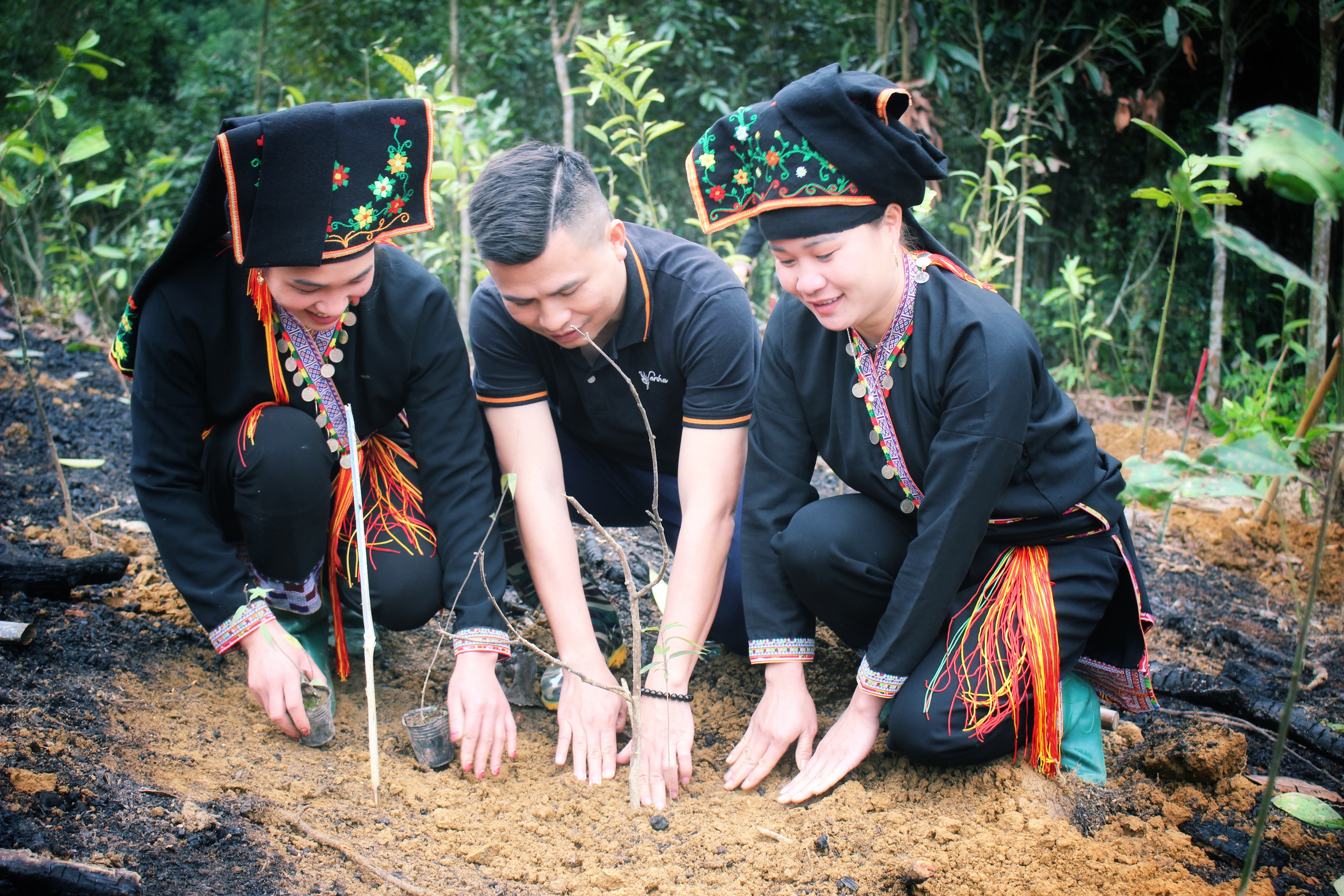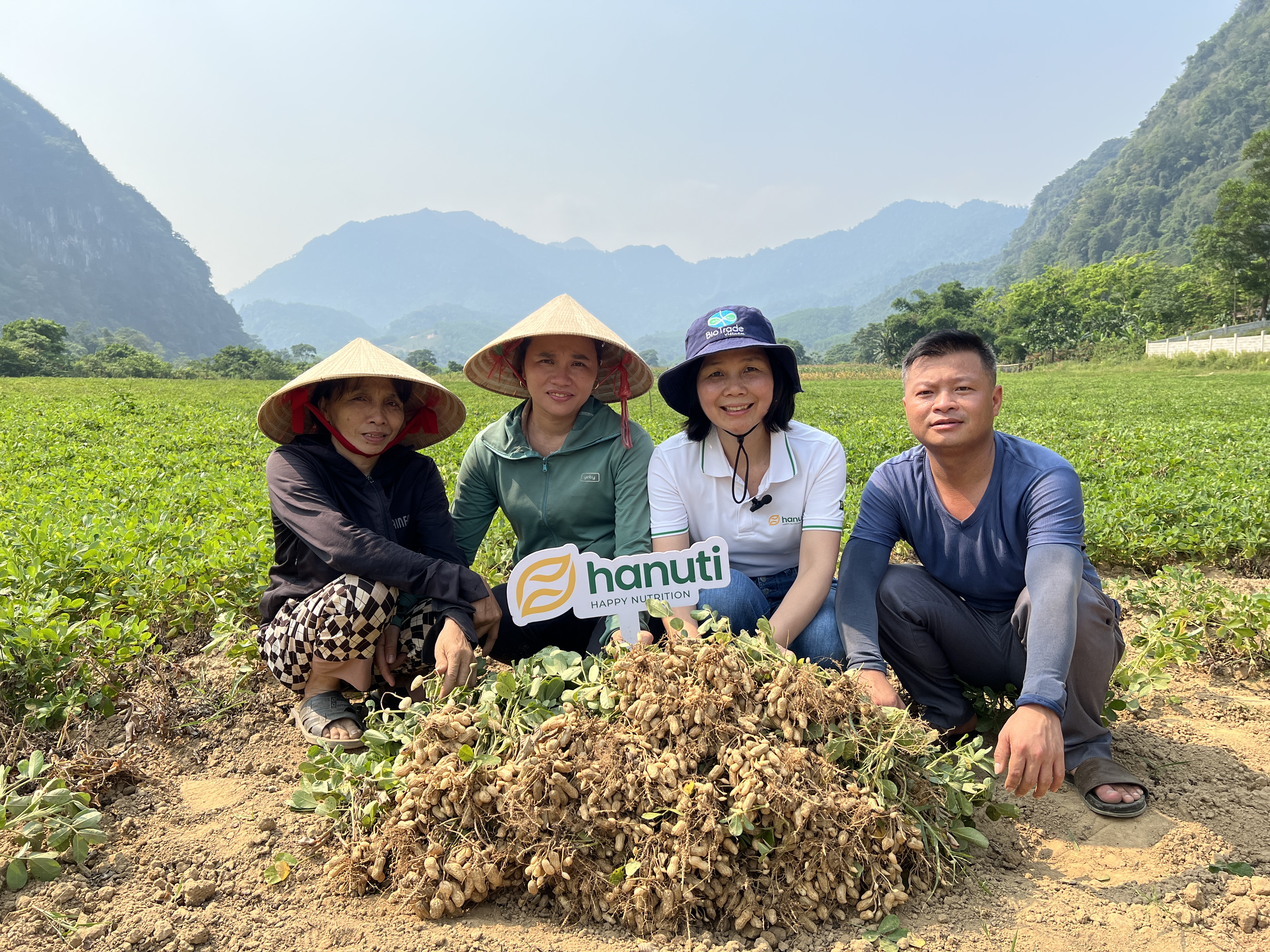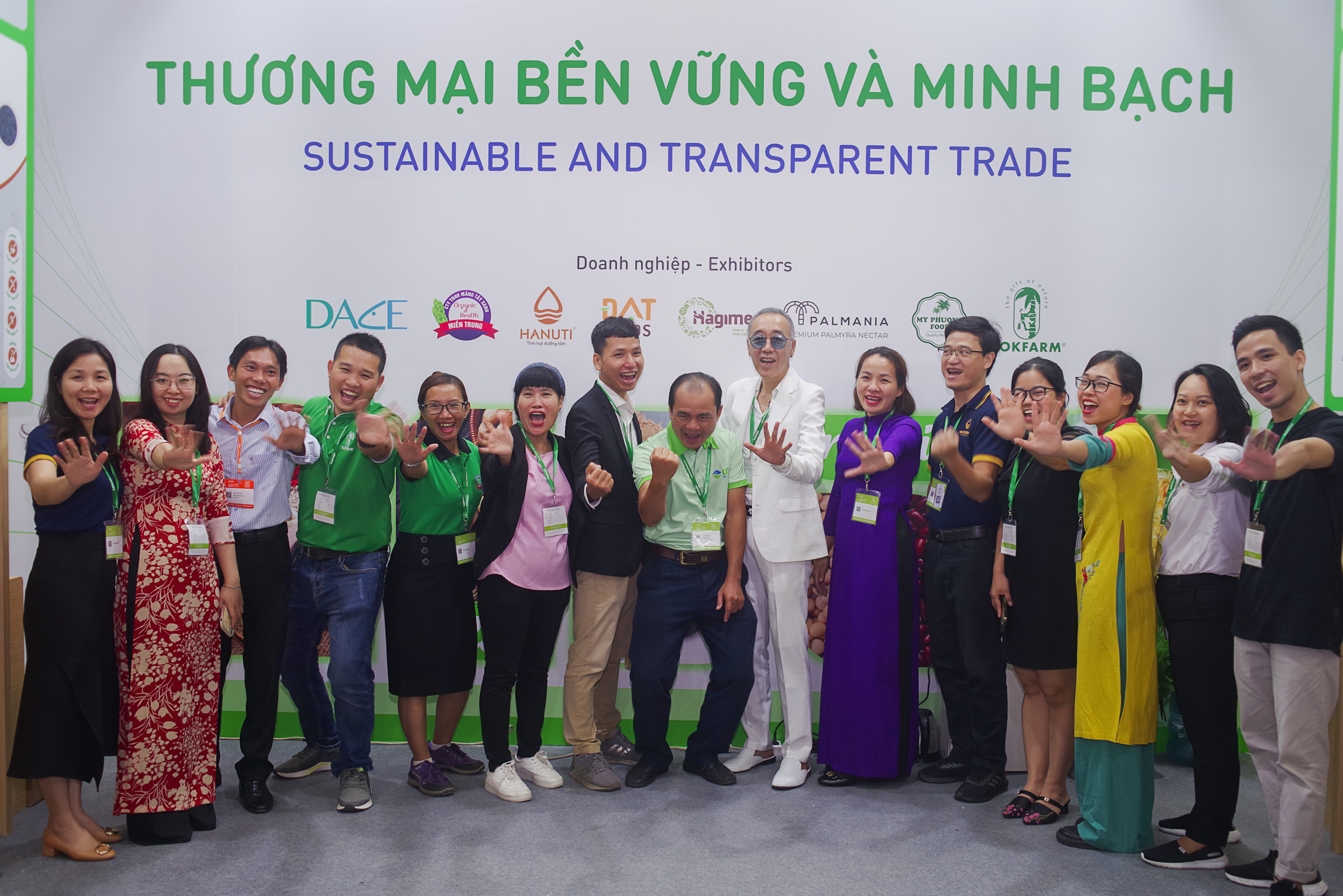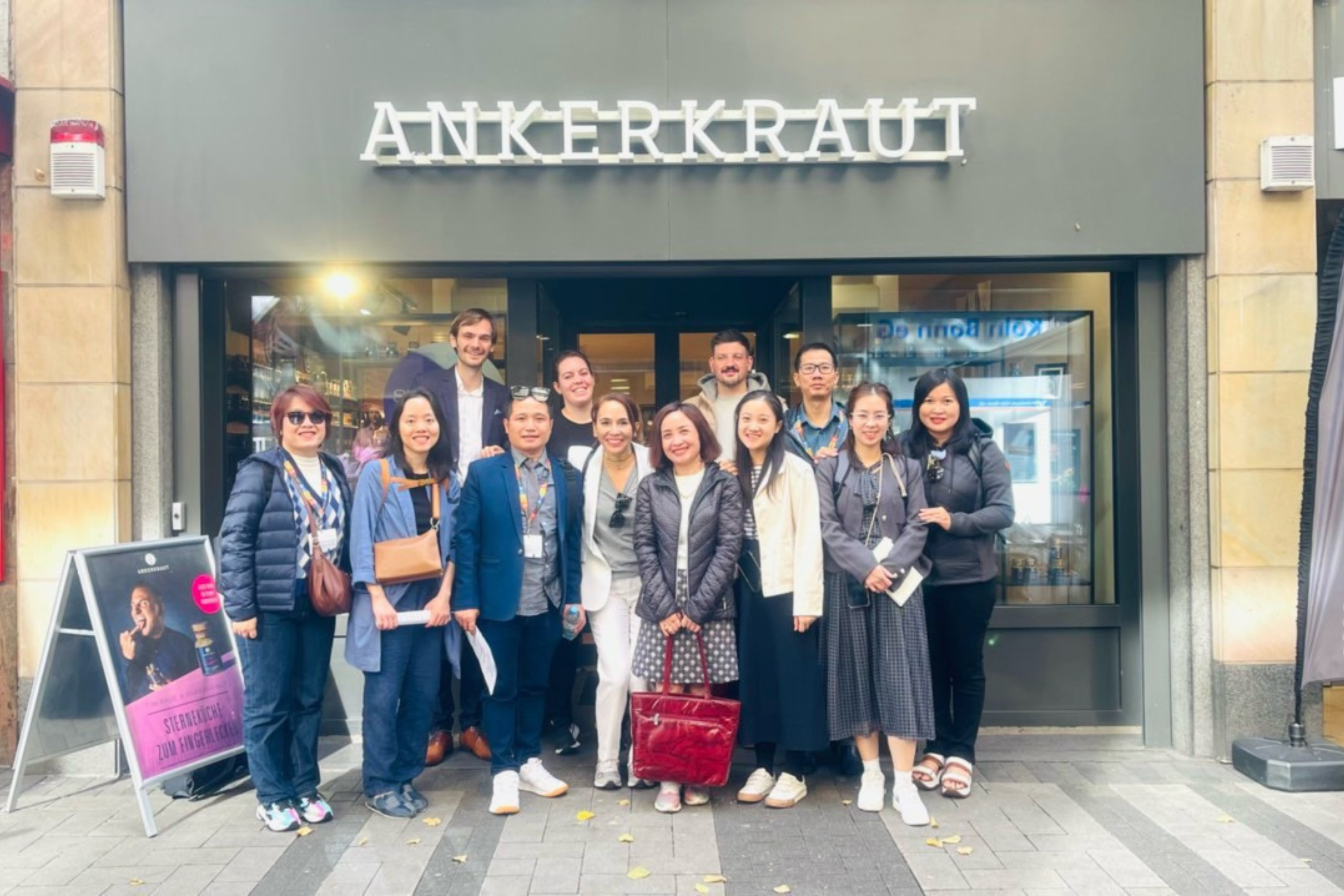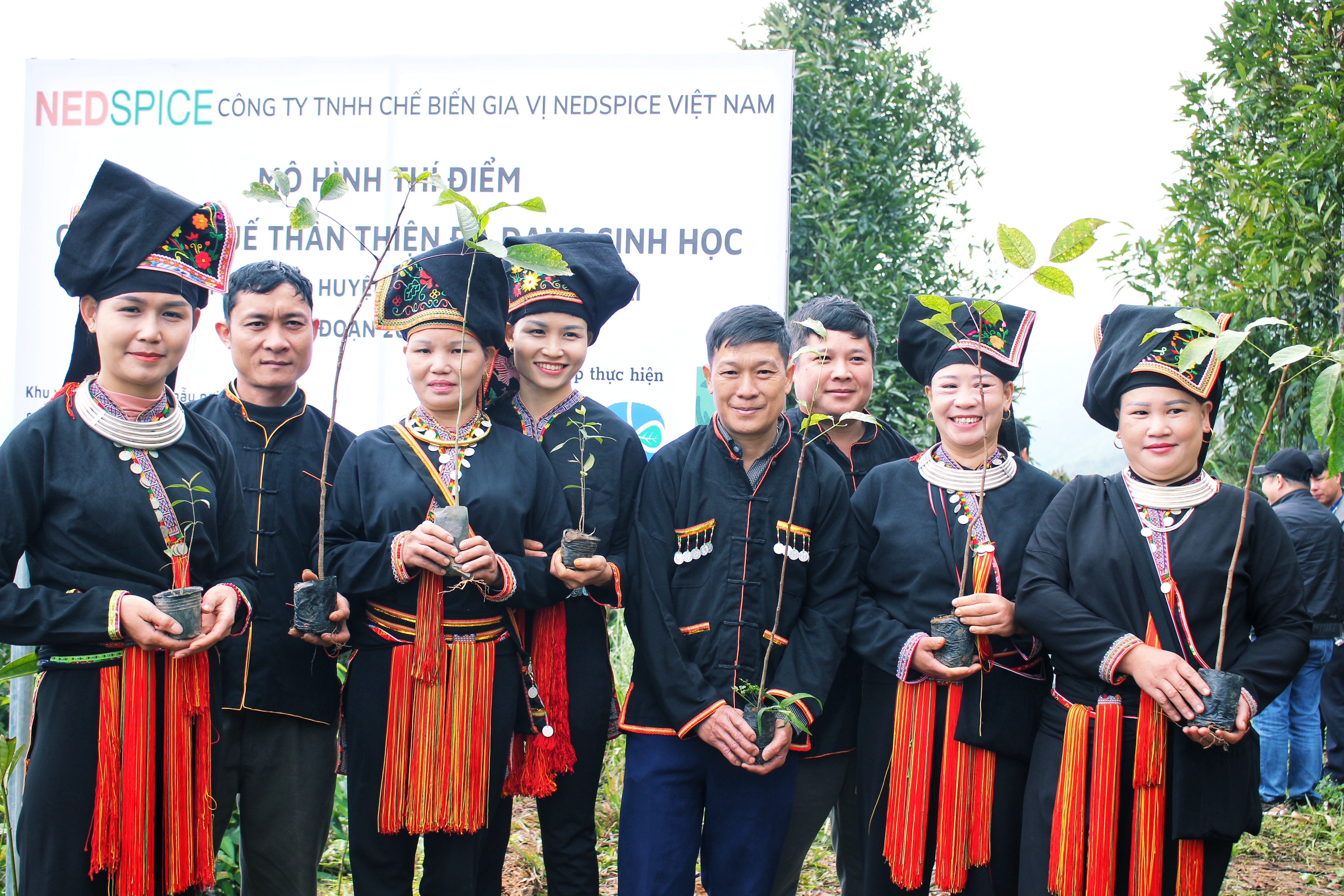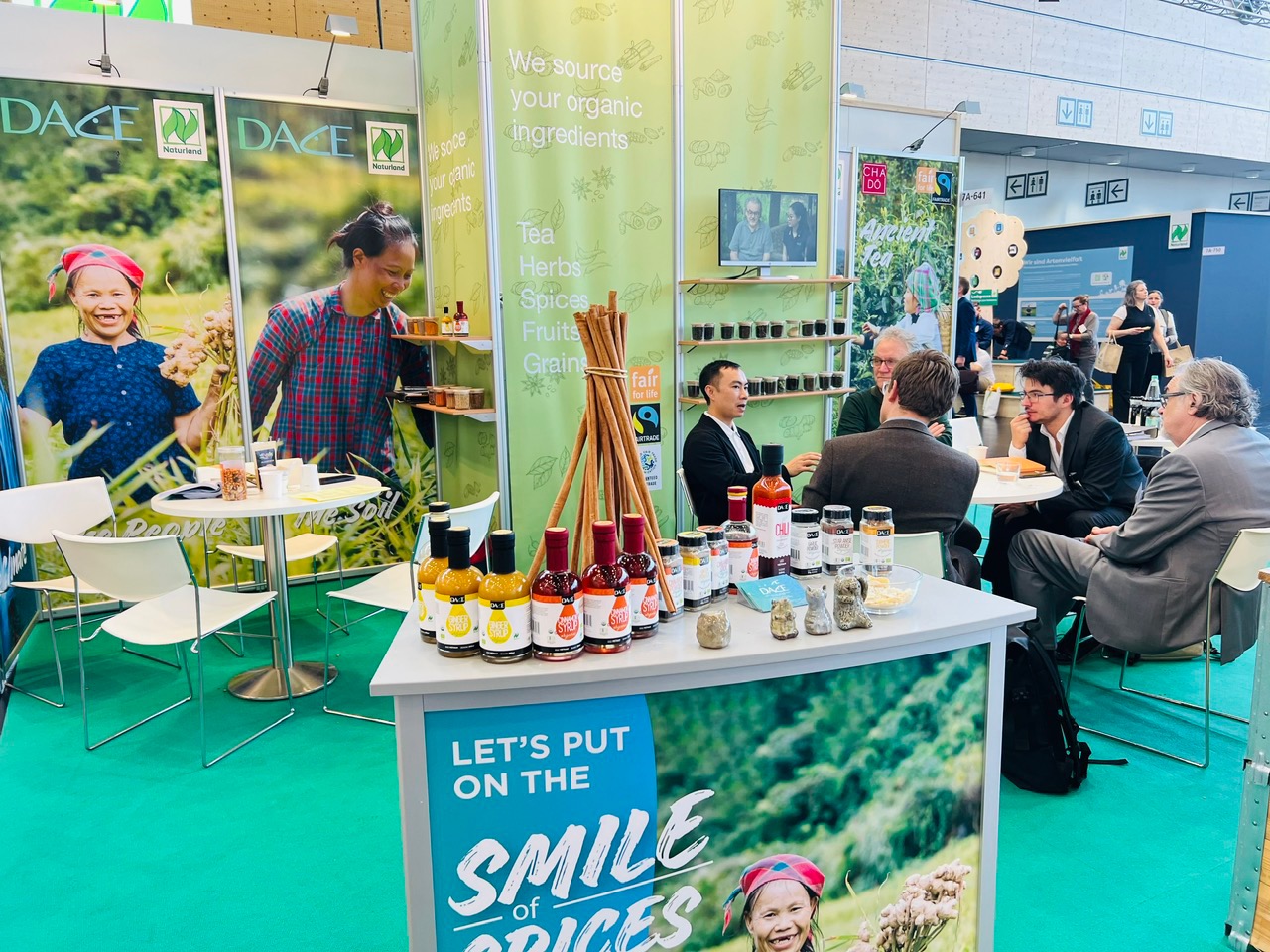The export market is increasingly demanding higher quality standards, especially with regard to heavy metal residues in products. In recent years, Europe and the United States have tightened these requirements, posing significant challenges for Vietnam’s agricultural and forestry products when exporting to these high-end markets.
Vietnamese cinnamon is no exception. The presence of heavy metals in cinnamon is a significant challenge for exporters. Unfortunately, research and solutions to reduce heavy metal residues in cinnamon have not been prioritized by local authorities, organizations, companies, or farmers. Sơn Hà Spices & Flavors Co., Ltd (Son Ha), a leading exporter of spices from Vietnam, especially cinnamon, had previously invested in a project to research heavy metals in cinnamon. However, the research was preliminary and did not provide effective solutions to address the root of the problem.
Năm 2021, Sơn Hà khơi lại vấn đề này cùng dự án Biotrade khi hai bên đang cùng hợp tác để cải thiện hệ thống và xây dựng “Kế hoạch hành động đa dạng sinh học (BAP)” tại vùng nguyên liệu quế bền vững của công ty tại Lào Cai và Yên Bái.
In 2021, Son Ha revisited this issue while gaining supports from the Biotrade project to develop a “Biodiversity Action Plan (BAP)” in their sustainable cinnamon sourcing areas in Lao Cai and Yen Bai.
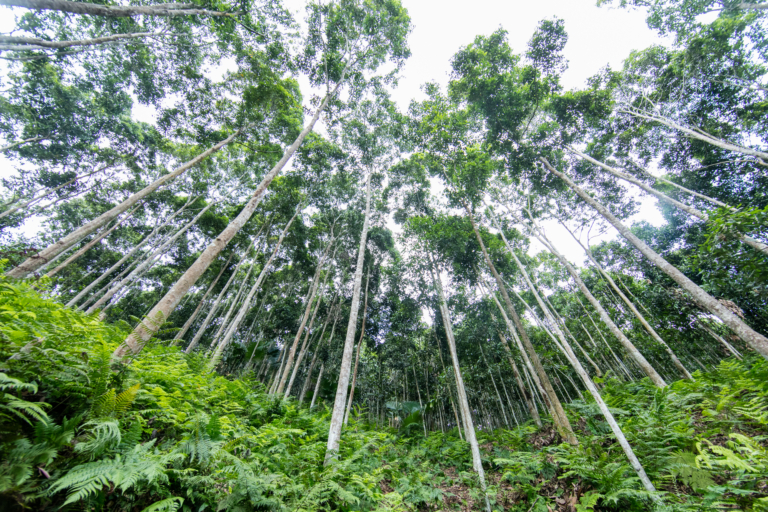
With technical support from the Biotrade project, for the first time Vietnam has a GENERAL STUDY ON HEAVY METALS IN CINNAMON at the industry level, covering all stages from seedlings, soil conditions, climate, water, cultivation, harvesting, and transportation. The study involved most companies in the cinnamon industry as well as international organizations such as IDH, GREAT, and the American Spice Trade Association (ASTA). Initial findings from Son Ha’s earlier research were shared, and information and data were collected from cinnamon sourcing areas nationwide. The research team analyzed this data and proposed appropriate solutions to reduce heavy metal content in cinnamon.
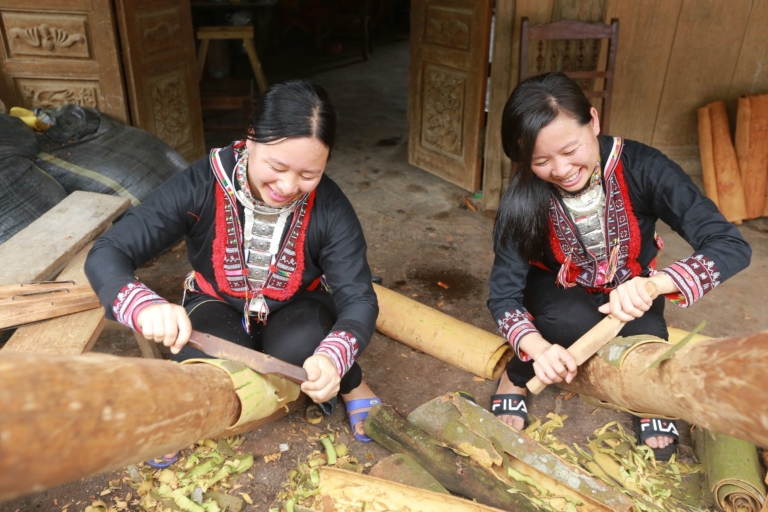
In May 2022, the report was presented at the Sustainable Cinnamon Workshop in Yen Bai Province, attracting attention not only from cinnamon growers but also from various levels of government. Through various workshops, the report was widely disseminated, leading to further discussions, not only at the workshops but also in dialogues between cinnamon producers, businesses, and local authorities in Yen Bai and Lao Cai, the regions with the largest cinnamon cultivation areas in the country.
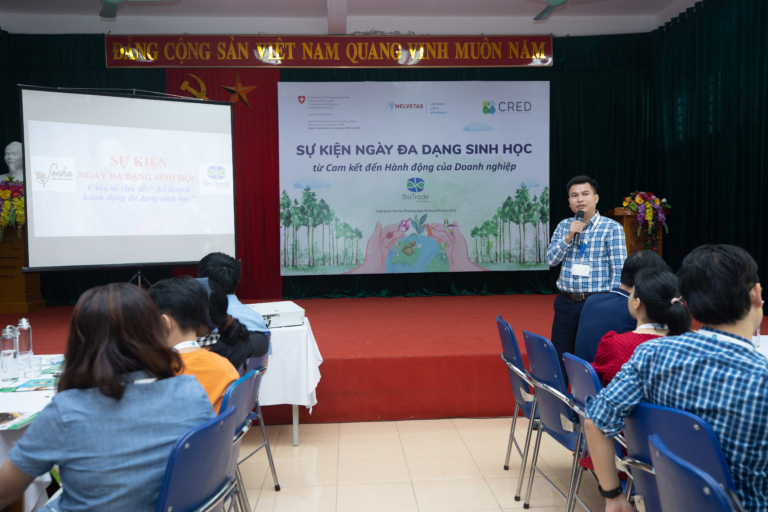
In addition, through these public-private dialogues, Son Ha and other companies have successfully advocated for Yen Bai and Lao Cai provinces to implement policies that support the sustainable development of the cinnamon value chain. These policies include financial support for the transition to organic/UEBT-RA cultivation, direction to the Forestry Protection Department to work with businesses to implement biodiversity-friendly cinnamon cultivation models, and training and capacity building for specialized staff in sustainable agriculture.
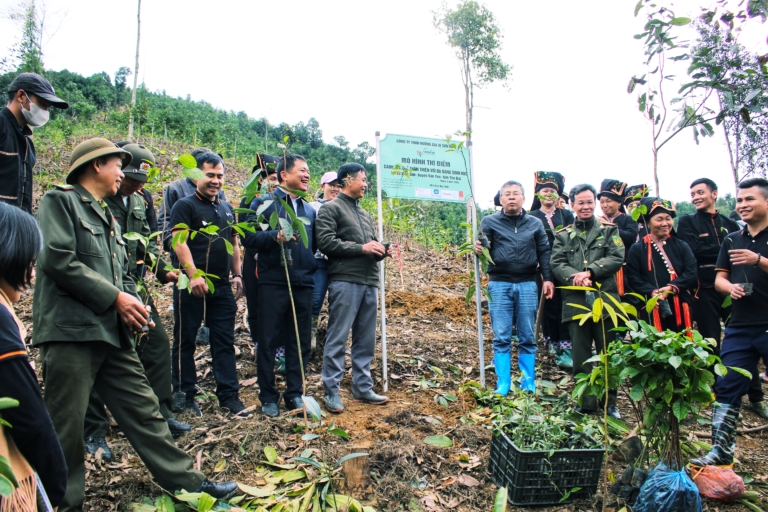
Ảnh: mô hình canh tác quế thân thiện đa dạng sinh học có sự tham gia của kiểm lâm của công ty Sơn Hà
“Biotrade’s support to Son Ha has not so much but always addressed practical and pressing issues facing the company. Through workshops and related activities, Biotrade has acted as a bridge, allowing companies, authorities and farmers to sit together, discuss, share and draw lessons to propose effective solutions. Biotrade’s support has contributed to the transformation and sustainable development of Vietnam’s cinnamon industry, making it better known in the global market,” said Mr. Le Van Long, Project Manager of Son Ha.
Cooperation implementations between Son Ha and Biotrade
- Support BAP development to Son Ha and cooperate in a number of workshops to share stories of businesses’ BAP implementation;
- Support assessment to obtain UEBT/RA certification to Son Ha;
- Cooperate to conduct research on “Heavy metals on cinnamon” and at workshops to share research results in the cinnamon industry;
- Support the development of a biodiversity-friendly cinnamon cultivation pilot model in Son Ha cinnamon sourcing area.
